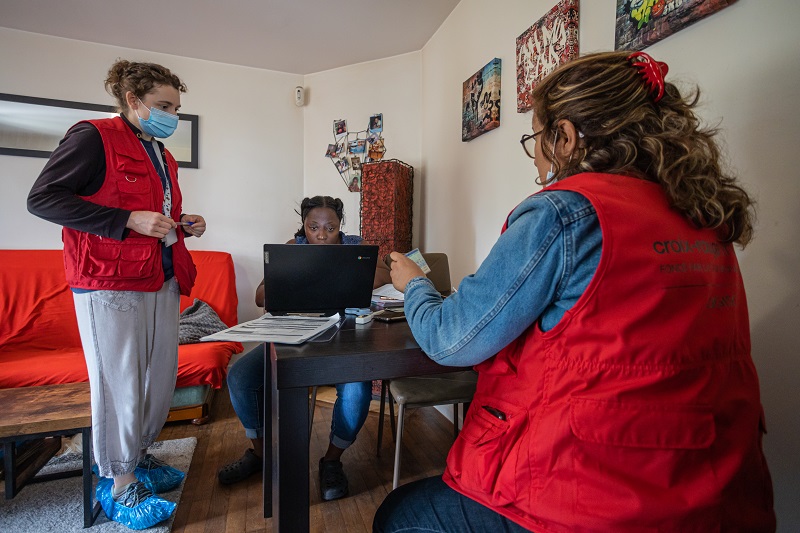Rising costs and falling temperatures will put many people in Europe at risk this winter
Last year, over 41 million European Union citizens were unable to keep their homes adequately warm. This winter, many people will be forced into making difficult decisions about their energy spending. Energy poverty is a multi-dimensional phenomenon, considered to be caused by a combination of low-income, high-energy expenses and poor energy efficiency in buildings.
While keeping the heating turned off is a way of reducing gas and electricity bills, it can come at the expense of people’s health. Energy poverty can also impact digital inclusion and how people are able to participate in society more broadly. Likewise, access to information, tips on how to save energy and knowledge on key social services may also be denied to the people who need them the most, such as older people, families experiencing poverty, migrants and refugees.
To identify suitable solutions for each household, it is fundamental to enhance cooperation between energy providers and social services. Social service providers, such as National Red Cross Societies, work closely with people in vulnerable situations to help them meet their needs, while also having the trust of energy companies. The Austrian Red Cross supports households and families unable to make their energy payments due to low income or unemployment by advocating for energy providers to set temporary blocks on their accounts, which enables households to delay payments and pay retroactively once their income becomes more stable.

Across the EU, the Red Cross has increased and adapted support to individuals and households experiencing poverty and hardship since the 2008 economic crisis. The Spanish Red Cross is helping people to understand their electricity bill and providing personalised advice on energy efficiency, as well as distributing energy micro-efficiency kits with light bulbs, insulators and other useful items, while offering training to individuals and families and carrying out energy rehabilitations. Some of these actions are aimed at reducing energy costs for families, such as social vouchers that decrease the price they pay for electricity, while others aim at decreasing consumption, such as the distribution of energy efficiency materials.
Through the LogisCité project, the French Red Cross offers free advice during home visits in households experiencing precarious financial situations. During the visits, staff assess the use of energy in the dwelling and provide relevant advice and tips that allow for savings on the annual energy bill. The visits are also an opportunity to direct people towards additional services tailored to their situation, such as financial aid, legal support in the tenant-landlord relationship, and social assistance. The project has reached more than 10,000 people in seven years.

Energy poverty is also a reality during the summer months when intensive heatwaves hit Europe. In Vienna, the Austrian Red Cross runs a cooling centre where people can stay for a few hours to cool down and recover from heat stress that results from the strain that extreme heat puts on the body. For healthy adults heat stress is usually unpleasant, but in the case of older people, children or chronically ill people, it can become a health severe problem. Similarly, the Spanish Red Cross supports communities to stay safe during summer communicating about the health risks of excessive heat. Through phone calls and approaching people in the street they share tips on how people can stay cool. Between May and September 2023, more than 65,000 people received a check-in call.
Energy poverty also impacts not-for-profit organisations, such as the Red Cross, who are at the frontline providing services to people in need. Indeed, dealing with increasing running and human resource costs is putting great strain on many European Red Cross societies. In many cases, a lack of funding and recognition by their national authorities risks imposing a scaling back of services.
Due to their community presence and proximity to communities, not-for-profit social service providers must be supported by national governments to meet needs, but also to adapt and innovate their approaches in delivering services to reach the most vulnerable people. Member States should extend socio-economic protection for businesses and families to frontline organisations like the Red Cross, so that social and health services are not compromised at a time when they provide critical support to people across the EU.
Read our recommendations to the EU and Member States to respond to the cost-of-living crisis here.
For media inquiries, please contact Eva Oyón on: eva.oyon@redcross.eu or +32 2 235 09 22

